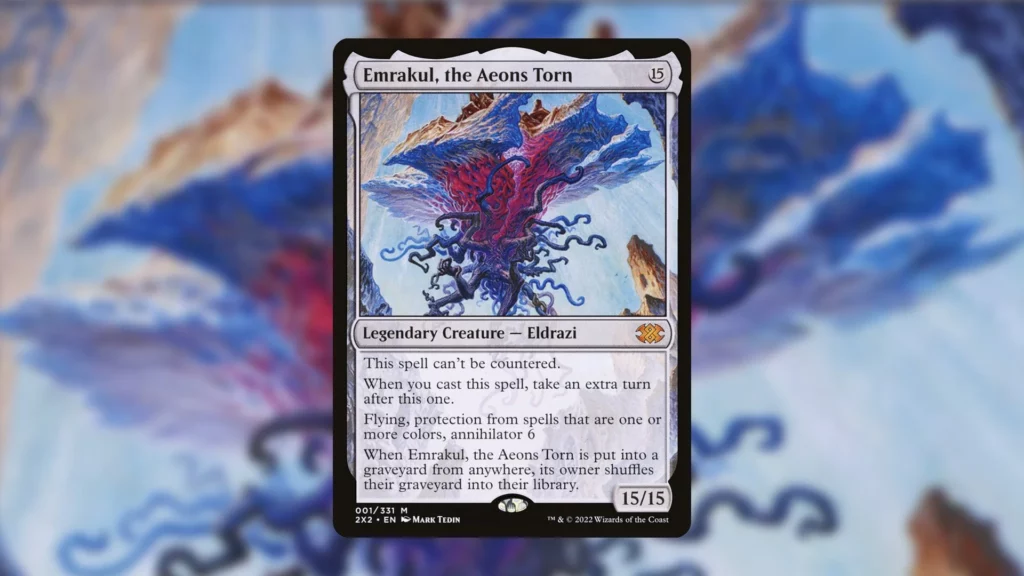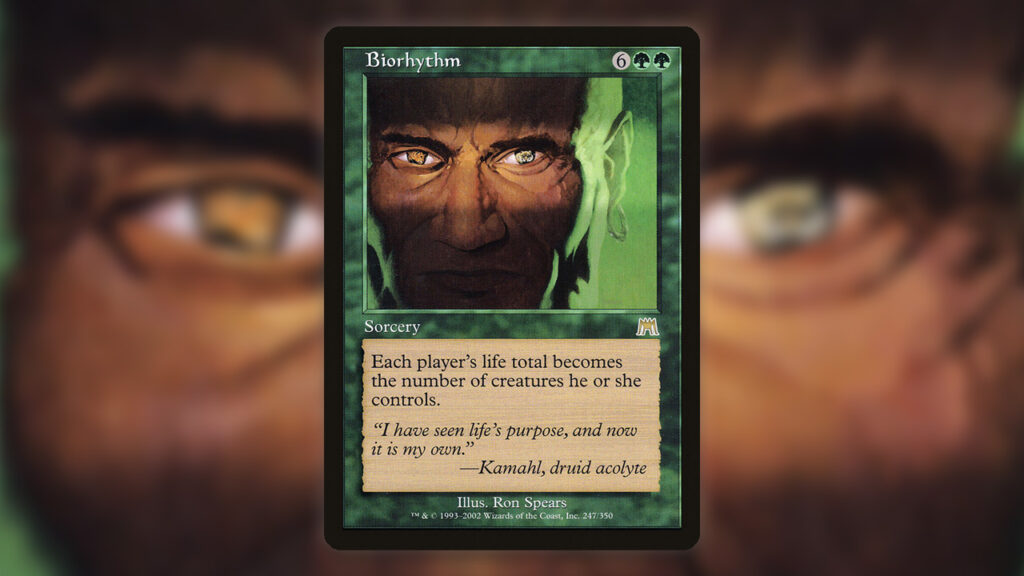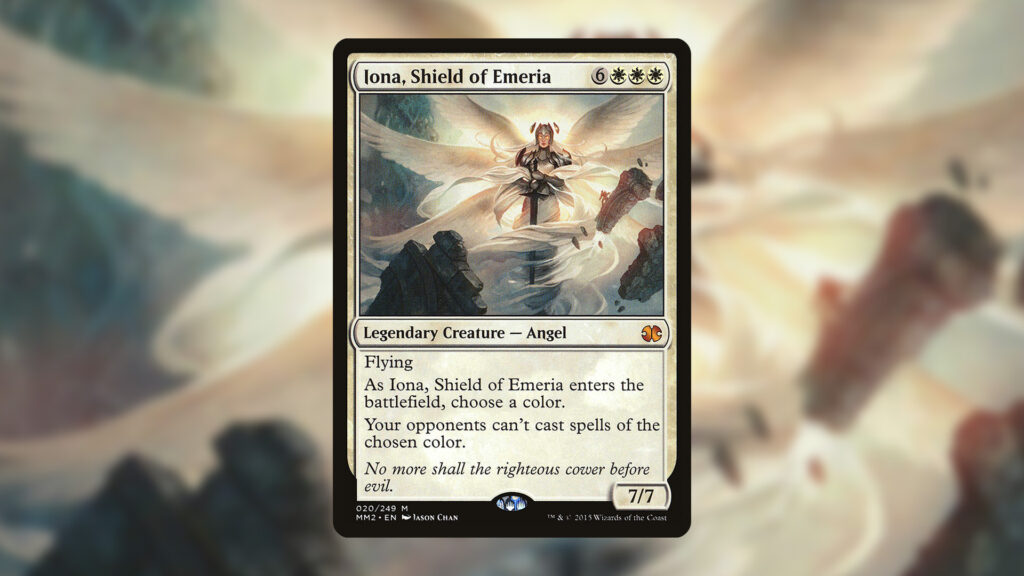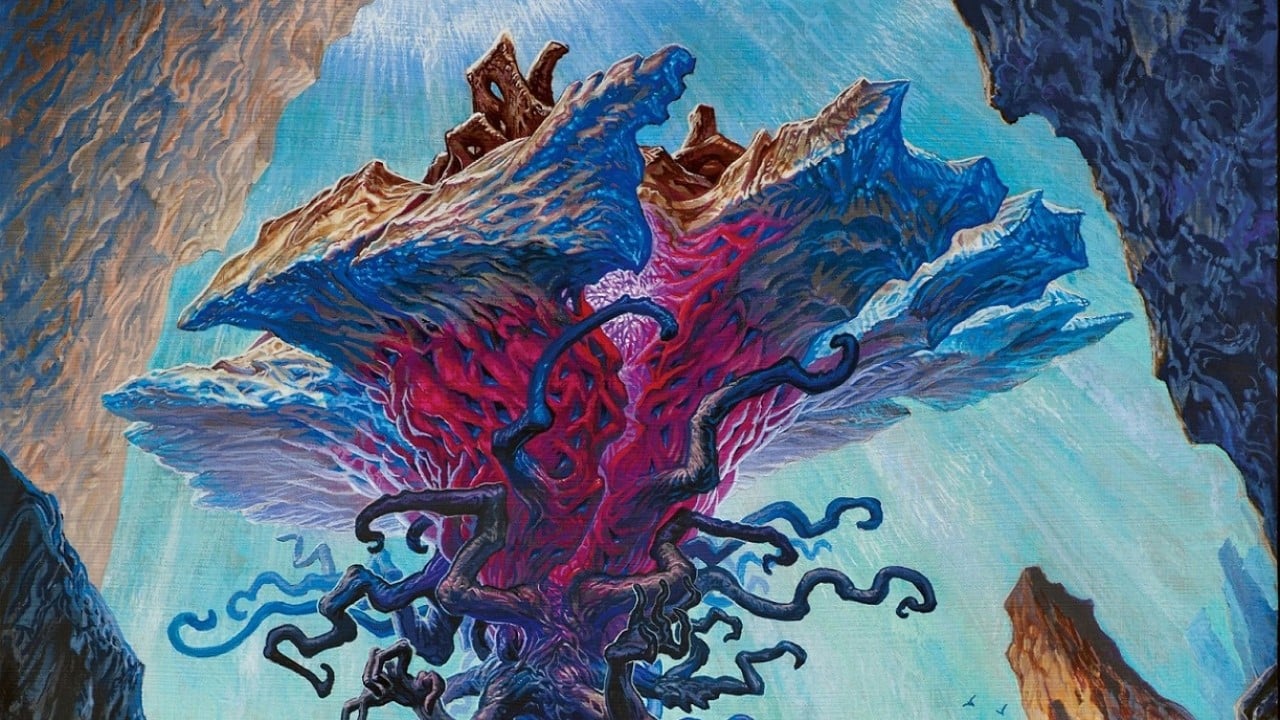A lot of players were relatively disappointed with the Commander unbannings that recently occurred. All of the cards reintroduced into Commander are undeniably safe additions, but they don’t stand to add much to the format, either. Gifts Ungiven is the only exception to this trend. For curious players who wonder why other cards may not have been removed from the ban list, Wizards of the Coast gave their reasoning. Just because they provided reasons, however, doesn’t mean we need to agree with it.
The rest of the Commander banlist stays still until 2026. Some cards were mentioned as possibilities depending on how the Bracket system evolves, while others were basically doomed to an eternal stay on the list.
In my opinion, the Commander unbans were a bit too tame. Some cards could have left the ban list and would be perfectly fine for the current format. Depending on how far Wizards of the Coast wants to go, a whopping 7 cards could have been unbanned, but a few of those cards would likely only work if they were legal in the 99 and not as a Commander.
Here, I’ll discuss why I think some more cards could have been unbanned this week.
Completely Safe Unbans
In my opinion, these cards could get unbanned right now and become Game Changers with no massive overhaul to how the Bracket system works:
These cards would be perfectly fine to see Bracket 3 play under the current system. All of these cards are big-mana spells that end the game at an appropriate time unless you’re trying to build a deck that clearly doesn’t work in a Bracket 3 environment.
Emrakul, the Aeons Torn, Biorhythm, and Iona, Shield of Emeria are all examples of this. If you’re casting a massive spell for eight or more mana,, you should generally win the game anyway. These cards are only a problem when they’re cheated into play ahead of time, which matches the nature of some cards that are currently on the Game Changers List.
Coalition Victory, Jin-Gitaxias, Core Augur, Vorinclex, Voice of Hunger, Sway the Stars, and Expropriate are all cards that have the same problem on the current Game Changers list. For their appropriate mana value, none of these cards are offensive, as the game should be nearing its conclusion anyway. Cheating these in ahead of schedule, however, is far too strong for bracket 3 gameplay.
This is particularly a problem when associated with Jin-Gitaxias, Core Augur. If someone cheats this out in an opening turn, opponents have exactly one rotation of the table to get rid of it before the game is basically over. One player will have a full hand, while everyone else is stripped of their resources. That is both incredibly unfun and much more difficult to answer than the other creatures in this discussion, including the ones still on the ban list. Even if Jin-Gitaxias does get removed during the turn rotation, one player will have a massive advantage, while others may have lost all their cards.
Emrakul, the Aeons Torn

Wizards of the Coast’s reasoning for leaving Emrakul, the Aeons Torn banned is a worry that it will homogenize the format as a win condition across big mana decks. Frankly, if someone spends 15 mana to cast an Emrakul, winning the game should be perfectly reasonable. Counterplay for this creature is rather limited, and will generally result in one player getting blown out, but as long as two or more opponents are alive after Emrakul touches down, the card dies to a board wipe.
Cheating out Emrakul is possible, but requires a ton of work. Any reanimator deck can stick a Jin-Gitaxias into play ahead of time, but Emrakul doesn’t stick around in the graveyard. You need to do some very specific things to get this into play ahead of schedule. If you’re building a deck around that principle, it’s not a Bracket 3 deck. You’re essentially using a combo to end the game too early.
As far as cEDH goes, Emrakul is far too expensive to see play outside of some very specific big mana decks – or decks that are otherwise designed to cheat it out. This could create some diversity at the highest level, but probably won’t actually end up having much of an effect.
Biorhythm

Biorhythm is another eight-mana spell that wins the game on resolution. This card wasn’t removed from the ban list because it’s a lot easier to use than something like Coalition Victory and is particularly lethal compared to other massive end-of-game spells. The card, however, is still eight mana and requires some setup to work properly.
Most Commander decks at Bracket 3 are unlikely to play these cards for similar reasons that Worldfire didn’t see play when it was unbanned: it’s simply not fun. Otherwise, similar to someone walking up to a table with a Braids, Cabal Minion deck, players can simply state that they don’t want to play against a Biorhythm deck.
From a power level perspective, like all the other massive spells, Biorhythm doesn’t even have a chance of threatening cEDH play. The card would be very powerful at Bracket 3 play, but Expropriate has a similarly strong chance of ending the game on resolution and requires absolutely no setup to pull off.
Iona, Shield of Emeria

Iona, Shield of Emeria threatens to turn a player off completely until it dies. That isn’t fun for anyone. For that reason, Iona is the most contentious card on the safe-to-unban list.
Even though Iona can shut an unlucky Mono-colored player off, it’s extremely easy to remove with spells of any other color. For nine mana, unlike the other massive spells discussed, Iona doesn’t even threaten to end the game unless it shuts down a significant portion of the table.
Like the other gigantic cards, Iona is a problem when cheated in, but it isn’t a bigger problem than the other cards discussed in this article. The only exception to this is if Iona shuts down the entire table on entry.
Iona would be perfectly safe for Bracket 3 play, but perhaps a little unfun. In this way, it’s similar to Braids, Cabal Minion, but Iona scales into the late game better. The card is nine mana, though.
In the 99 Only

A few cards that would cause problems at Bracket 3 play as Commanders could get unbanned as cards legal exclusively in the 99-card maindeck. Wizards of the Coast did state that there was a potential for this type of ban to become a reality in their unban article, but there’s absolutely no guarantee that this will happen.
Golos, Tireless Pilgrim, Rofellos, Llanowar Emmissary, and Lutri, the Spellchaser all fit within this category. The issue with Golos and Rofellos lies in their consistency. Rofellos in the 99 basically becomes something similar to Gaea’s Cradle that’s easy to remove. Taking care of it once with a Path to Exile isn’t a problem. Having to remove it every other turn, on the other hand, could be asking too much for Bracket 3 play.
Golos, Tireless Pilgrim has a similar problem. The card certainly lowers the barrier to entry for five-colored decks in Commander, but Golos’s ability to find lands means it can almost re-cast itself should it get removed. That, combined with its activated ability, means that Golos is an inevitable value machine in the Command Zone. Outside of it, Golos will probably see play in every single 5-color deck under the sun, but all you really need to do is kill it. The homogeny caused by Golos might still mean that the card is inappropriate in the 99, but it would be far from harmful, and definitely not cEDH viable.
Lutri, the Spellchaser’s issue is that, as a Companion, it essentially offers a buff to all Izzet decks with no downside. In the words of Gavin Verhey, “That is not appropriate or tenable.” In the 99, however, Lutri isn’t just reasonable, it wouldn’t even be a Game Changer. Tons of cards that do the exact same thing as Lutri, like Dualcaster Mage, are currently Commander legal and see little to no play.
A Year Until Changes Occur
Despite the potential for more to be done, these Commander unbans are still a great start towards a healthier format. The Commander Bracket System is still in Beta, which means that there’s serious potential for it to evolve as players keep sending feedback.
Hopefully, as players digest these banning and Wizards of the Coast gets more feedback, more cards leave the ban list and reenter the Commander format. Of course, it won’t be until 2026 until that happens for sure.
For reference, I also think that Jeweled Lotus could be a safe unban, but it’s a bit more contentious and sensitive than the cards discussed in this article. I explain my thoughts on the matter here.


